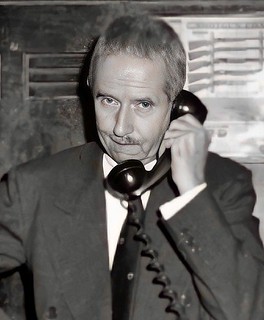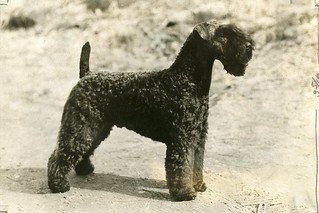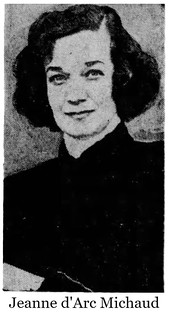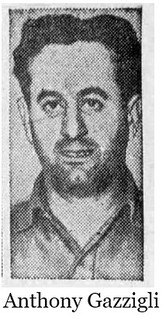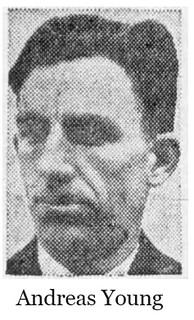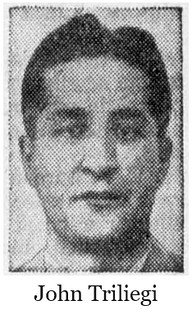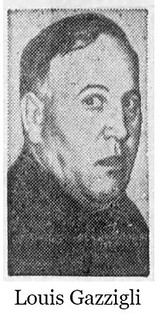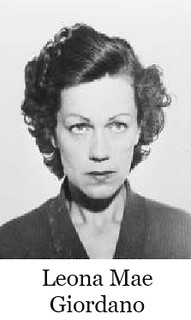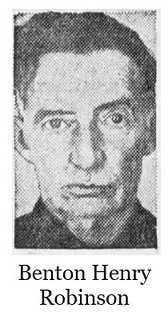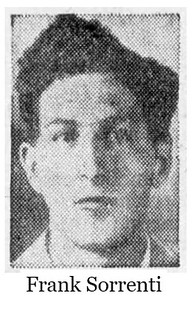
PREV ARTICLE
NEXT ARTICLE
FULL ISSUE
PREV FULL ISSUE
THE 1952 LAVERE REDFIELD BURGLARYE-Sylum Feature Writer and American Numismatic Biographies author Pete Smith submitted this article on the 1952 LaVere Redfield burglary. Thanks! -Editor Everyone knows (or should) about the Redfield hoard of silver dollars. This week I will report on another sensational chapter in his story that got a lot of publicity at the time.
1952 LaVere Redfield Burglary
Redfield hated the IRS and distrusted banks. He also hated to have his picture taken. He dressed like a common farmer in overalls and a plaid shirt to avoid being recognized as he walked downtown to gamble in the Reno casinos. Nell and LaVere were away from home when burglars broke into their house around noon on February 29, 1952. They carted off an 18 x 24 x 36 inch green safe that weighed 400-pounds with currency, securities and jewelry initially valued at $2.5 million. Newspapers claimed it was one of the biggest thefts in U. S. history.
Police jumped into action. On March 2, they issued a bulletin to be on the lookout for five suspects including an attractive 27-year-old blonde and four men with extensive criminal records. They were driving an expensive Cadillac which was a sure sign of guilt. On March 3, the car was stopped at a roadblock near Butte, Montana, and the suspects were taken into custody. Newspaper coverage was interesting. The woman was described as a willowy blonde 5' 7 tall and weighing 120 pounds. Heights and weights of the men were not given. Some papers carried a photo with her name but did not include names or photos of the men. Their names were published in more than a hundred newspapers around the country.
They were released the following day when it was determined they were being held in jail in
Elko, Nevada, at the time of the burglary. After leaving Butte, they were picked up and held in
Missoula briefly. The woman complained that the newspaper descriptions were
Mrs. Marie Jeanne D'Arc Michaud (36) was a French-Canadian songwriter who married a Connecticut doctor. After a few years they went to Reno for a divorce and she chose to stay. She met Redfield in June 1951 and became a frequent visitor to his house and companion on his visits to a casino. She hatched the plot to rob Redfield. Afterward she took off to California. She was arrested by FBI agents on the California Limited train to Chicago and taken off at Flagstaff, Arizona. With her she had cash, jewelry and securities linked to the burglary. She attempted suicide with sleeping pills while in jail in Flagstaff.
Young and Triliegi drove to the house in a 1951 Cadillac sedan while Gazzigli parked his pickup truck a few blocks away. The guard dog was distracted with a ham bone while the thieves entered the house. Young was supposed to crack the safe in a few minutes but could not. The thieves took the 400-pound safe away in the back seat of the Cadillac. They took the safe to the Johnson ranch where Anthony's brother, Louis Gazzigli worked. The four men shoved the safe under the ranch house. That evening the men took the safe into the barn and broke into it with a sledge hammer. They counted the money and split it up, giving much of it to Mrs. Michaud. The safe was dumped down an abandoned mine shaft on Redfield property.
John Baptiste Triliegi (37) was a soap salesman with a wife and seven children. He suffered a back injury working in a Milwaukee cement plant and was receiving disability payments. This did not stop him from helping to remove the 400-pound safe from the Redfield residence. He was sentenced to one to five years in prison. Andreas Robert Young, (46) the incompetent safe-cracker, came from Milwaukee to commit the crime. The FBI identified him as an ex-con who had been sentenced to life in prison in 1939 for a 1927 Wisconsin murder. He was pardoned and released in January 1946. For the Redfield case, he received a sentence of one to five years in prison. Louis Gazzigli (44) was a bouncer and former professional boxer known as Young Firpo. He received a sentence of one to five years in prison and was granted parole on March 15, 1955. Benton Henry Robinson (65) was a handyman at the Stardust dude ranch where Mrs. Michoud frequently stayed. FBI agents found $31,731 hidden in a pillow case. He was charged with receiving stolen property and sentenced to four years in prison. Frank Sorrenti, (36) a door-to-door soap salesman. was held on a federal charge of interstate transportation of stolen property. It was his Cadillac that was used in the heist. He claimed he had no knowledge of the crime. Eventually the charges were dropped for lack of evidence. With trials pending in June of 1952, and a subpoena to testify as a witness, Redfield went missing. FBI agents issued a warrant for his arrest on June 19. He was taken into custody at Sebastopol, California, and transported to Reno. When given the opportunity to get out on bail. he claimed he would rather stay in jail until trial to avoid lurking photographers. Mrs. Michaud had an interesting defense at trial. She said there had been no burglary. Redfield had told her she could take the money and make it look like a burglary. They came to an agreement in his bedroom on December 28, 1951. When Redfield was asked at trial if this was true, he was evasive with his response. Despite her claim of innocence, she was convicted and sentenced to five years in prison. Anthony Gazzigli recruited the burglars and organized the crime. His cooperation with the prosecution was credited for obtaining confessions and convictions. He was given probation. Most of the loot was recovered. Some of the bills were obsolete large-size bills from the 1920's that would have had a collector value. Today the large denomination bills would also have a collector value. While the story of his silver dollars is well known, the dispersal of his currency is not mentioned. Photo credits: LaVere Redfield, Reno-Gazette-Journal; Jeanne d'Arc Michaud, The Sacramento Union, June 26, 1952; Gazzigli, Gazzigli, Robinson, Sorrenti, Triliegi, and Young, Sidney Daily News April 8, 1952. Interesting cast of characters. You just can't make this stuff up. Thanks for pulling the story together. As Pete notes, higher-denomination Federal Reserve Notes ($500 and $1,000) were just cash at the time, but they are more widely collected today and seem to be enjoying their day in the sun with recent multiple auction appearances of large numbers of notes. Can any of them be traced to the Redfield burglary? -Editor
To read earlier E-Sylum articles, see:
Wayne Homren, Editor The Numismatic Bibliomania Society is a non-profit organization promoting numismatic literature. See our web site at coinbooks.org. To submit items for publication in The E-Sylum, write to the Editor at this address: whomren@gmail.com To subscribe go to: https://my.binhost.com/lists/listinfo/esylum All Rights Reserved. NBS Home Page Contact the NBS webmaster 
|
